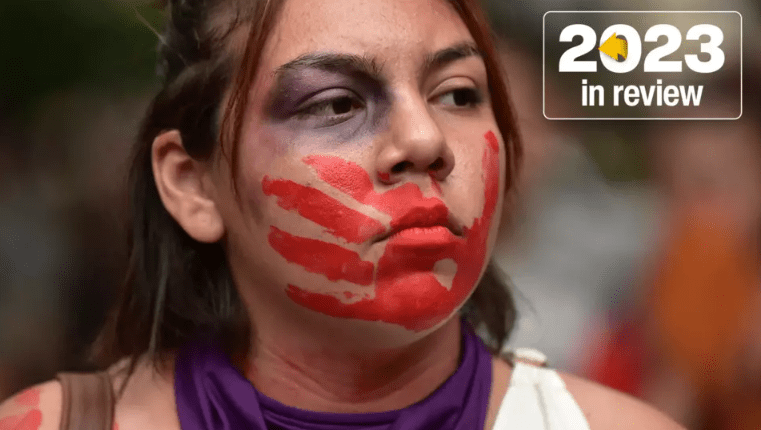
The year saw progress on women’s rights in some countries, such as Spain’s introduction of menstrual leave, France’s bid to enshrine abortion rights in the constitution and the arrival of the #MeToo movement in Taiwan. But there were also setbacks in 2023, from Taliban edicts tightening restrictions on Afghan women to what the UN called a “global epidemic of femicide”.
The year 2022 was marked by major convulsions in women’s rights across the world, from the US Supreme Court’s overturning of Roe v. Wade to the “Woman, life, freedom” chants in Iran, which were followed by a massive government crackdown.
This year saw more gradual developments, from the continuing assaults on and pushback against diminishing abortion rights in the US to the steady disappearance of women from public life in Afghanistan.
Looking back at some of the major developments in 2023 that left their mark on women’s rights across the world.
In February, Spain became the first European country to pass a law creating menstrual leave for women suffering from painful periods. Equality Minister Irene Montero – from the far-left Podemos party, part of the Socialist-led ruling coalition – called it “a historic day for feminist progress”.
The law, which passed by 185 votes in favour to 154 against, entitles employees experiencing period pain to time off, with the state social security system – not employers – picking up the tab.
As with paid leave for other health reasons, it requires a doctor’s approval. The length of sick leave was not specified in the law.
The new legislation also allows minors aged 16 and 17 to have an abortion without parental permission, reversing a requirement introduced by a previous conservative government in 2015.






